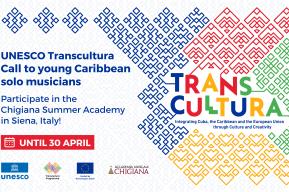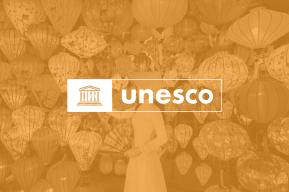Article
The State of Eritrea considers the benefits of ratifying UNESCO’s 2005 Convention on the Protection and Promotion of the Diversity of Cultural Expressions

The Commission for Culture and Sports in Eritrea mobilized 60 artists, performers, actors, writers, designers, filmmakers, poets, musicians, and dancers along with representatives from various ministries and other government institutions to raise awareness of the potential contribution of the cultural and creative industries sector to sustainable development in Eritrea.
The two-day national awareness-raising and advocacy workshop took place on 28 and 29 October 2019 at the Commission for Culture and Sports in Asmara with support from UNESCO Regional Office for Eastern Africa in order to present the benefits of ratification of the 2005 Convention on the Protection and Promotion of the Diversity of Cultural Expressions and to discuss Eritrea’s experiences, challenges and aspirations in the cultural and creative sector.
The opening ceremony of the workshop showcased cultural performances by Eritrean musicians, dancers and poets representing the nine ethno-lingustic groups of Eritrea. Throughout the workshop, various artists and performers presented their poems, songs, dances, music, fashion, art and stand-up comedy routines in order to demonstrate the talented and active creative sector in Eritrea.
“This workshop aims to raise national awareness of the need to protect and promote the diversity of cultural expressions,” said Ambassador Zemede Tecle, Eritrean Commissioner for Culture and Sports, during the opening ceremony for the workshop. “It is a continuation of previous collaborations with UNESCO, which supported a national inventory of intangible cultural heritage,” he added.
The workshop provided participants with an introduction to the four objectives of UNESCO 2005 Convention as well as capacity building programmes, networks and funding available to support their achievement:
- Sustainable systems of governance for culture to implement policies and measures that are based on informed, transparent and participatory processes;
- Achieve a balanced flow of cultural goods and services and increase the mobility of artists and cultural professionals through preferential treatment measures for countries from the global South;
- Integrate culture as a strategic dimension of sustainable development frameworks, including international development assistance programmes and national development plans;
- Promote human rights and fundamental freedoms as a pre‐requisite for the creation and distribution of diverse cultural expressions through support for gender equality and artistic freedom, including the social and economic status of artists.
The workshop also highlighted the key message of the Convention: to ensure all citizens, especially artists, cultural professionals and creative practitioners can create, produce, disseminate and enjoy a diversity of cultural goods and services, including their own. Discussions focused on the importance of the culture value chain, establishing partnerships and networks, and taking a multi-sectoral approach to developing the creative industries sector.
The workshop was led by Dr. Jenny Mbaye from UNESCO’s Expert Facility. She presented the links between the cultural industries, cultural policies and the cultural economy. Eritrean fashion designers, artists, musicians, authors and filmmakers shared their personal experiences, accomplishments and challenges working in various creative sectors. Dr. Mbaye shared short films with participants to showcase successful case studies of African experiences in developing the cultural and creative industries sector, such as the GoDown Arts Centre in Kenya and the Visa for Music market in Morocco. Examples were also given from the Fespaco film festival in Burkina Faso and the Bienniale d’Art African Contemporain in Dakar as well as a testimonial from Selly Raby Kane, a Senegalese fashion designer.
The need for capacity building was highlighted by many of the participants as well as the need to strengthen networks and links for marketing, production and distribution.
“Eritrea is already a signatory to three UNESCO Conventions in the field of Culture, including the 1954 Convention for the Protection of Cultural Property in the Event of Armed Conflict, the 1972 Convention concerning the Protection of the World Cultural and Natural Heritage, and the 2003Convention for Safeguarding of the Intangible Cultural Heritage”, said Ms. Karalyn Monteil, Programme Specialist for Culture at UNESCO Regional Office for Eastern Africa. “Following its ratification of the UNESCO 2005 Convention, Eritrea would benefit from guidance and resources available to Parties of the 2005 Convention, including technical support from the capacity building programme and financial support from the International Fund for Cultural Diversity (IFCD),” she added.







